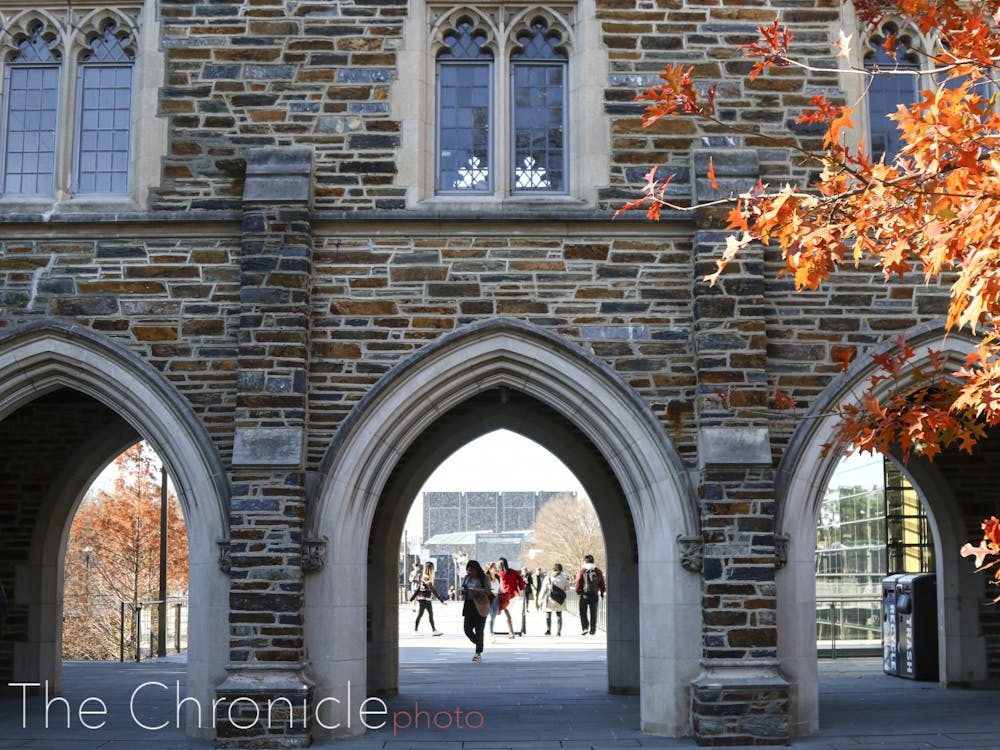Duke is launching a multi-pronged effort to combat racism at the University and expanding existing initiatives, including $16 million in new grant funding from The Duke Endowment.
President Vincent Price delivered an update on Duke’s anti-racism efforts in a Thursday afternoon message to the community, detailing efforts that include expanding diversity among faculty, improving students’ experiences and engaging with local communities.
In his message, Price emphasized the importance of appreciating “Duke’s history of innovation, service and leadership while acknowledging the entwinement of that history with slavery, segregation, and white supremacy,” and recognizing the progress the University has made toward inclusion while acknowledging that work remains to be done.
“As we look ahead toward a more hopeful future, a key goal has been to move decisively and without delay to mobilize every part of our enterprise to address systemic racism and advance racial equity, both by redoubling existing efforts and by initiating significant new programs,” Price wrote. “A second key goal has been to ensure that anti-racism and equity remain long-term priorities for Duke, woven carefully into every aspect of our institutional strategy and culture.”
$10.5 million in funding from the grant from The Duke Endowment—a private foundation that is separate from Duke’s own endowment but that has given more than $1.6 billion to the University since 1924—will be used both to expand recruitment and retention of diverse faculty, according to a Thursday news release about the grant.
Duke’s diversity hiring program will now be tracked through a “dashboard of faculty diversity data, which will be available to the entire Duke community,” according to Price’s message.
The rest of the grant money will go to funding anti-racism education for students, faculty and staff, which will be implemented starting next semester.
The University will also take steps to improve the student experience, focusing on recruiting BIPOC, first-generation and low-income students and creating a new Low-Income First-Generation Engagement Steering Committee, according to Price’s message.
Other initiatives are aimed at ensuring equal opportunities for staff, promoting health equity, improving diversity in leadership, fostering research on racism and related topics, addressing Duke’s culture and institutional history and engaging with Durham and regional communities. Some notable highlights include:
- Launching professional-development opportunities for staff, with a focus on historically underserved groups.
- Creating a program called the Presidential Fellowship to provide “diverse leadership opportunities for mid-career faculty.”
- Surveying students, faculty and staff about Duke’s culture, with results shared publicly.
- Surveying Black alumni about their experiences, with results shared publicly.
- Removing the name of Thomas Jordan Jarvis, a North Carolina governor and white supremacist, from the East Campus dorm that bore his name.
- Contributing to a Durham Public Schools campaign for digital equity for Durham students.
Duke Health has also launched a “comprehensive anti-racism plan” called Moments to Movement, Price’s message notes.
The message also notes that Student Affairs and the Office of Undergraduate education have begun implementing recommendations from an undergraduate Hate and Bias Working Group, including the creation of a Student Ombuds office. This fall, the University also added an orientation program titled “Foundations of Equity.”
In a June message outlining the broad strokes of Duke’s anti-racism efforts, Price wrote that he would update the community by Oct. 15. His Thursday message includes the announcement of a new website dedicated to Duke’s anti-racism efforts, with details on each of the initiatives and information about whether projects have so far been implemented, as well as a collection of anti-racist educational materials.
This is a developing story and will be updated.
Get The Chronicle straight to your inbox
Signup for our weekly newsletter. Cancel at any time.
Matthew Griffin was editor-in-chief of The Chronicle's 116th volume.

